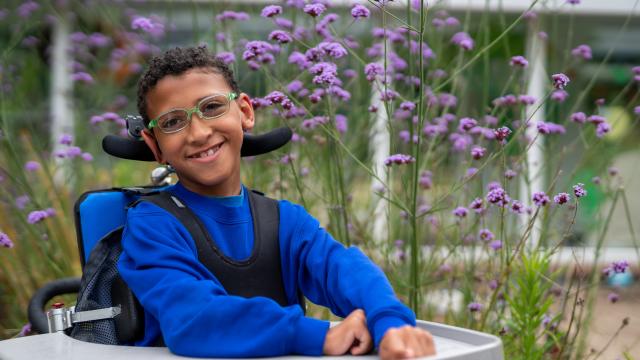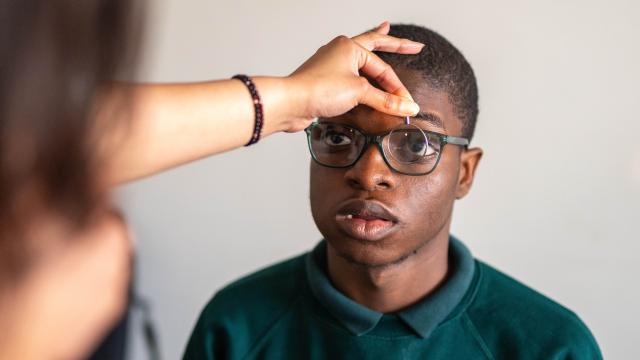
Minister visits London special school to see SeeAbility eye care team in action
Last month we had a special visitor to a very special school, Minister for Care, Stephen Kinnock MP.
Stephen visited The Village School in London to see children receiving eye care from our specialist team. He also got to experience how some of the tests are delivered and how it is possible to prescribe glasses, even if a child is unable to say what they can see. (Pictured).
We were able to hand the Minister a joint letter calling for the service to be of the quality and continuity children with learning disabilities need and for it to be sustainably funded as there are serious fears over the detail for the future rollout.
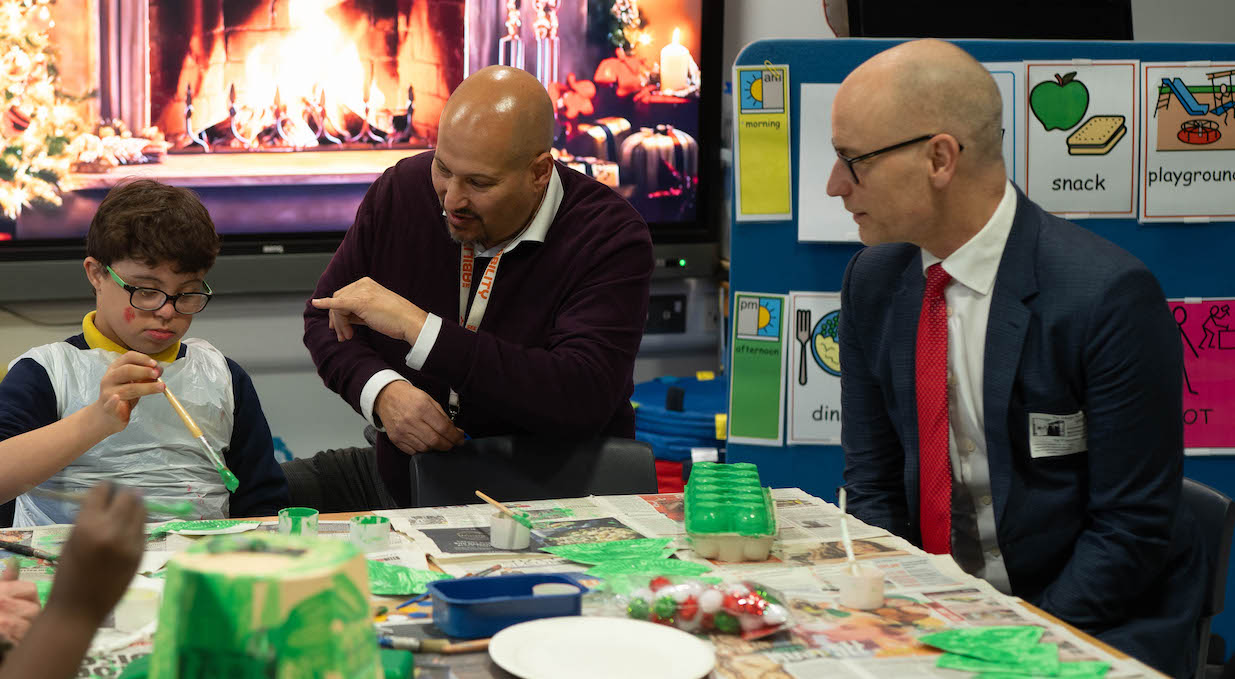
Read more: SeeAbility and over 60 organisations and individuals who have been campaigning for better eye care for people with learning disabilities have signed a letter on Improving eye care for people with learning disabilities in the next NHS 10 year plan
Showcasing successful support
Our work has highlighted that children with learning disabilities are 28 times more likely to have a sight problem than other children and has also revealed that half of children in special schools will have a problem with their vision.
Yet around half have never received eye care before and over 4 in 10 will need glasses.
As a result of our work and peer reviewed research, NHS England took expert advice and initially rolled out a ‘one stop shop’ of eye care in special schools across London, the North West and North East & Yorkshire as part of the NHS Special Schools Eye Care Service.
In October the government announced that the eye care scheme would be made available to all special schools alongside other sensory check initiatives in residential special schools, and the detailed plans are now being laid out by the NHS.
The Minister heard from teachers and met with children who have benefitted from the programme, as well as eye care professionals who have been delivering eye care and treatment in the form of glasses to the pupils and advising parents and teachers on how to support children to make the best use of their vision.
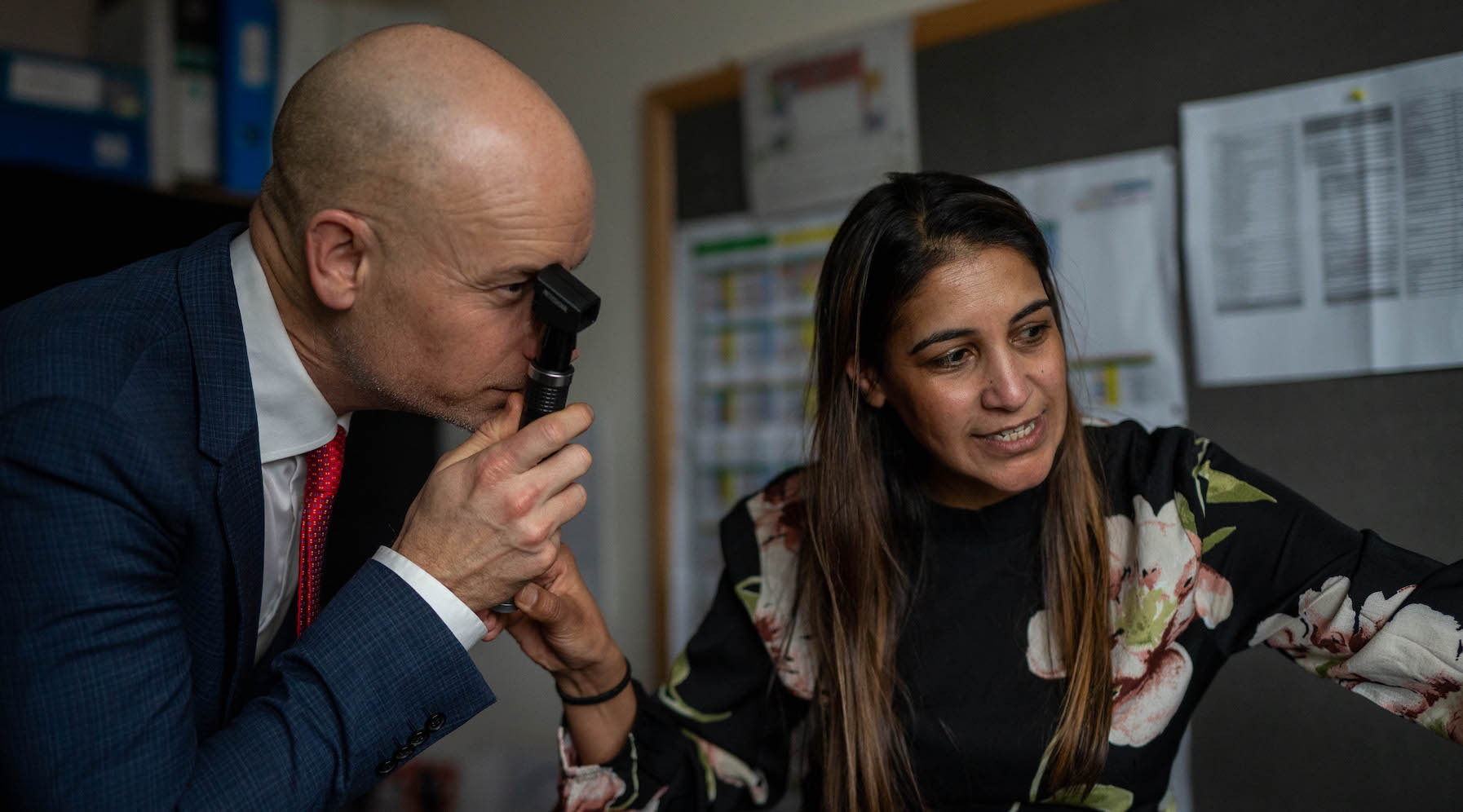
Minister of State for Care, Stephen Kinnock, said:
“I want to thank The Village School and SeeAbility for inviting me to see the fantastic work they are doing to support children with learning disabilities and complex needs.
“This service will make a real difference, improving the lives of tens of thousands of children.
“We are proud to be launching these vital sensory checks for children in special education settings in an environment that is comfortable and known to them.”
Karol Stelmaszczyk Headteacher at The Village School said:
“The Village School was among the pioneering educational settings to collaborate with SeeAbility in 2014, making a significant advancement in eye care by incorporating comprehensive sight tests and glasses dispensing within special schools. This groundbreaking initiative has earned numerous awards and is now being embraced by the NHS.
"A decade later, the positive effects of accessible eye care, particularly on those children who had previously never received a sight test and required glasses, is remarkable.
"For many children who have struggled with significant visual impairments, the journey has been challenging. However, with the vital support they have received, they can now experience the beauty of the world around them. It is heartwarming to see them gain the ability to see and engage with life in ways they once thought were out of reach."
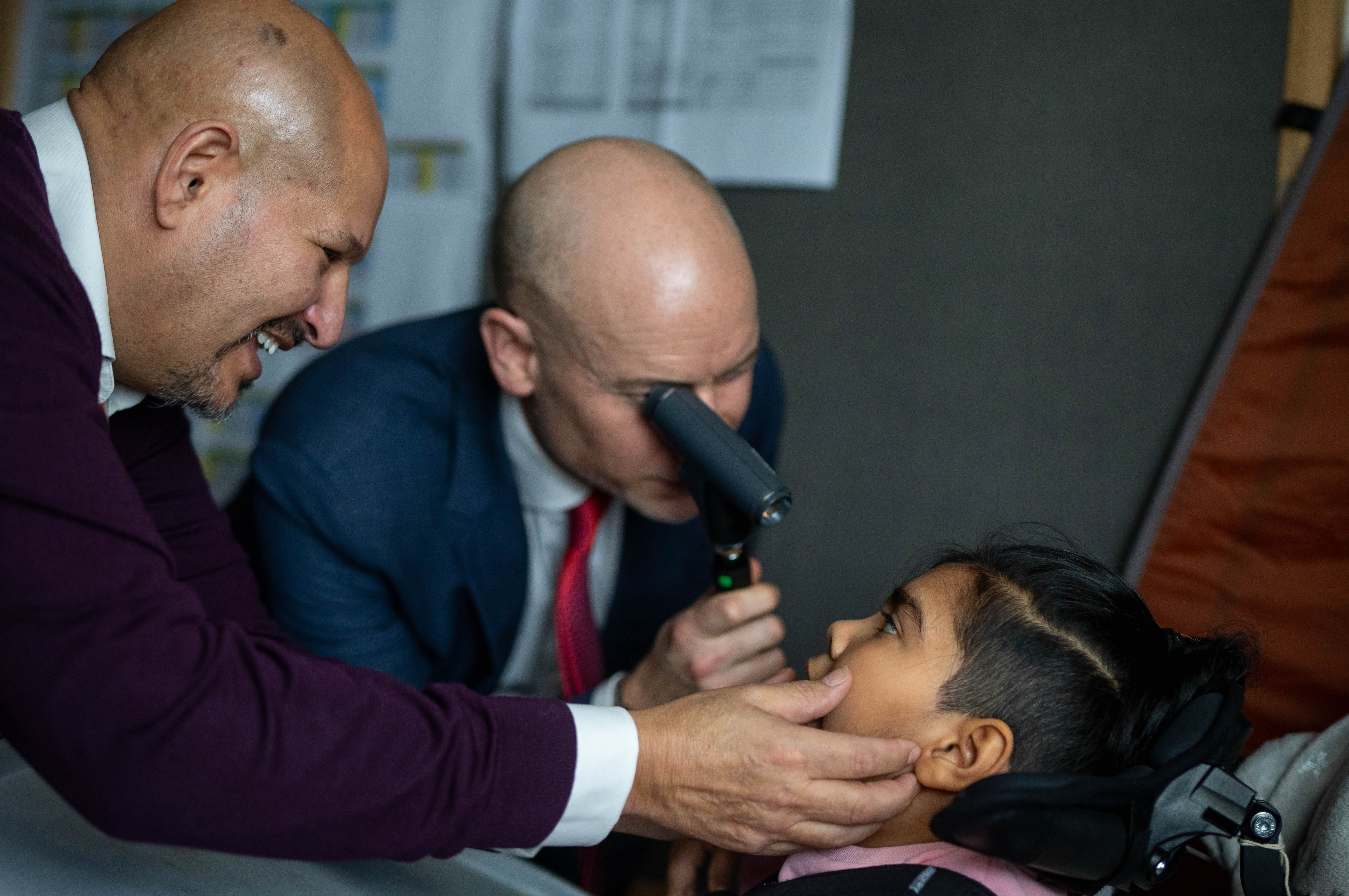
Lisa Donaldson, SeeAbility’s Head of Eye Care, who is an optometrist, said:
“It was such a pleasure to host the Minister as crucially it was the Department’s innovation funding which enabled us to demonstrate that this multidisciplinary service is needed in special schools.
"Now we are at the cusp of seeing the Service roll out nationally, it is vital that the construction and the funding of the scheme delivers the same great outcomes from this initial work.
"Thinking creatively about the way eye care services are delivered can mean everyone gets a more equal right to sight. There is huge consensus on how this can be achieved for everyone with a learning disability as the next NHS 10 year plan is developed.”
Read more: SeeAbility and over 60 organisations and individuals who have been campaigning for better eye care for people with learning disabilities have signed a letter on Improving eye care for people with learning disabilities in the next NHS 10 year plan


